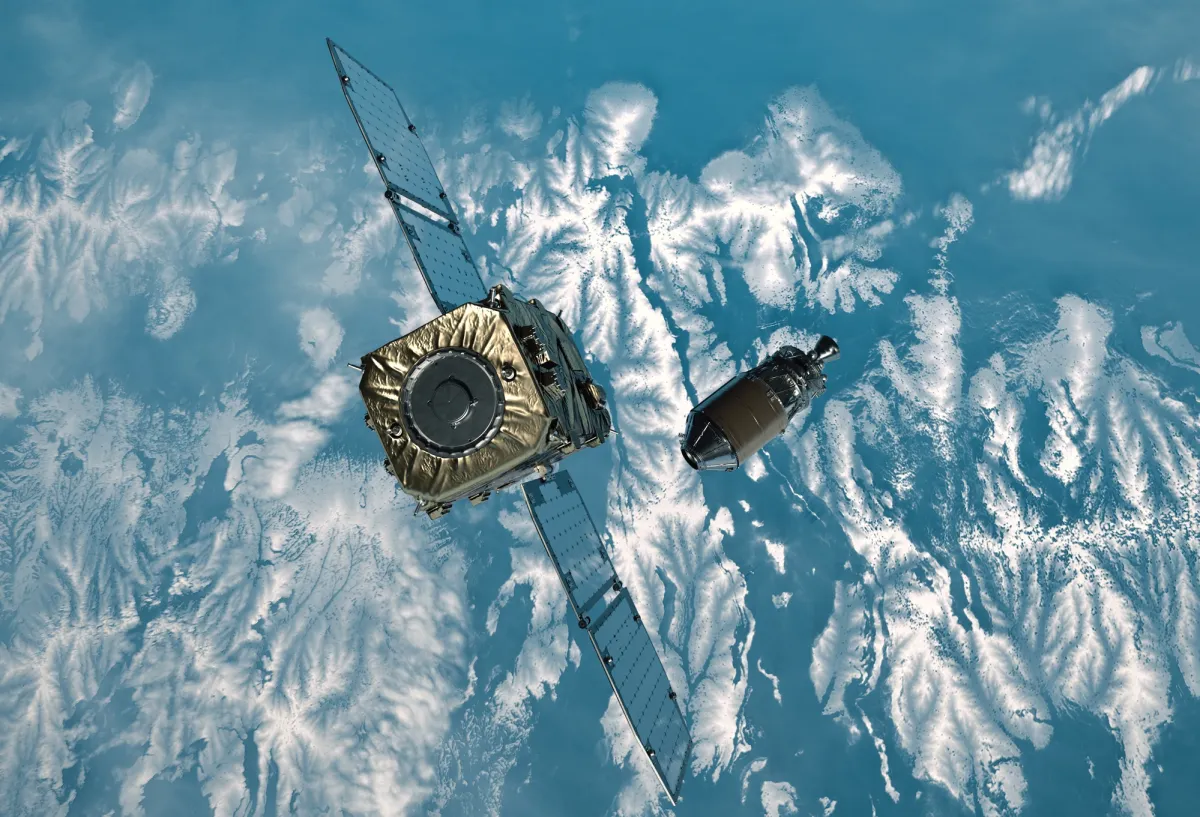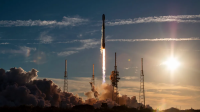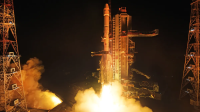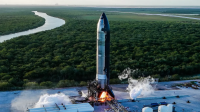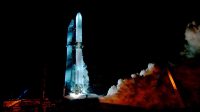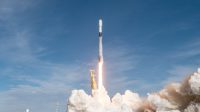Astroscale‘s ADRAS-J spacecraft, launched aboard a Rocket Lab Electron from New Zealand’s Launch Complex 1, aims to rendezvous with and inspect a spent upper stage in low Earth orbit, setting the stage for its eventual removal. This mission marks Rocket Lab’s second launch of the year, following the deployment of four satellites for NorthStar Earth and Space.
The 150-kilogram ADRAS-J satellite was successfully released into an orbit about 600 kilometers above Earth’s surface. Developed as part of JAXA‘s CRD2 program, ADRAS-J will approach the 11-meter-long, 4-meter-wide upper stage of an H-2A rocket, which launched the GOSAT Earth observation satellite in 2009, to assess its condition and movement. Astroscale’s Chief Technology Officer, Mike Lindsay, highlighted the significance of this mission, stating, “This will be, to my knowledge, the first mission that will approach and rendezvous with an actual piece of space debris.”
Gene Fujii, Astroscale’s Chief Engineer, emphasized that the ADRAS-J mission will demonstrate the most challenging aspects of rendezvous and proximity operations (RPO) technologies, expecting the mission to last between three to six months.
The ADRAS-J mission faced delays, originally planned for launch in November, due to a September Electron launch failure. Despite the setback, Astroscale remained committed to Rocket Lab’s Electron, arguing that a dedicated launch was essential to place the spacecraft in a specific orbit near the H-2A upper stage.
Sandy Tirtey, Rocket Lab’s Director of Global Commercial Launch Services, underscored the significance of the mission, stating, “There is no way you could do this on a rideshare.”
This mission follows Astroscale’s ELSA-d demonstration in 2021, which tested rendezvous and capture technologies using a servicer and client spacecraft. The ELSA-d mission faced complications, including thruster failures on the servicer spacecraft. Despite these challenges, Astroscale learned valuable lessons, particularly in balancing autonomy and ground interactions for safety.
Astroscale recently completed mission operations for the ELSA-d servicer and client spacecraft, with the servicer set to reenter Earth’s atmosphere in about three and a half years, while the client spacecraft is expected to deorbit within five years.

